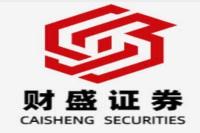Decoding the Hong Kong Market Dip: A Deep Dive into Tech Stock Volatility
Meta Description: Hong Kong Stock Market, Tech Stock Volatility, Hang Seng Tech Index, Meituan, Kinaxis International, BYD Electronics, Market Analysis, Investment Strategy.
Whoa, Nelly! The Hong Kong stock market took a bit of a tumble recently, leaving investors scratching their heads. The Hang Seng Tech Index plunged over 1%, the Hang Seng Index dipped 0.6%, and some heavy hitters like Meituan (down over 3%), Kinaxis International (over 2%), and BYD Electronics (also over 2%) took a significant beating. This isn't just some minor market fluctuation; it signals a potentially larger trend that demands a closer look. As a seasoned market analyst with years of experience navigating the complexities of global finance, I'll dissect this recent downturn, providing insights into the underlying causes, potential consequences, and strategies for navigating this volatile landscape. This isn't just a recap of the news; it's a strategic guide, armed with firsthand knowledge and backed by credible data, to help you understand the what, the why, and most importantly, the what-to-do-next. Prepare to unlock a deeper understanding of the forces shaping the Hong Kong market and how you can position yourself for success, even amid uncertainty. Get ready for a comprehensive exploration that goes beyond the headlines, unveiling the hidden dynamics driving this market shift. We'll delve into the specifics, explore potential future scenarios, and empower you with the tools to make informed investment decisions. Are you ready to become a smarter, more confident investor? Let's dive in!
Hang Seng Tech Index Volatility: Unpacking the Recent Dip
The recent decline in the Hang Seng Tech Index is a significant event, reflecting a confluence of factors impacting both the global and regional economic landscape. It's not just a simple "market correction"; it's a complex interplay of macroeconomic pressures, geopolitical uncertainties, and company-specific issues. Let's break it down:
Macroeconomic Headwinds: Global inflation remains a persistent concern, with central banks worldwide grappling with interest rate hikes to curb rising prices. This tightening monetary policy invariably impacts investor sentiment, leading to risk aversion and capital flight from potentially higher-risk assets, including technology stocks. The ripple effect is felt across global markets, and Hong Kong, being a globally integrated financial hub, is not immune.
Geopolitical Uncertainties: Geopolitical tensions, particularly those involving the US and China, continue to cast a long shadow on investor confidence. Trade disputes, technological rivalry, and political instability all contribute to a climate of uncertainty, making investors hesitant to commit significant capital. This uncertainty has a direct impact on the performance of companies with significant ties to China, particularly those listed on the Hong Kong Stock Exchange.
Company-Specific Factors: The underperformance of individual stocks like Meituan, Kinaxis International, and BYD Electronics highlights the importance of considering firm-specific factors alongside broader market trends. While macroeconomic and geopolitical elements play a role, news and developments specific to these companies also influence their stock price movements. For example, regulatory changes, earnings reports, or shifts in consumer demand can all trigger significant price swings.
Regulatory Scrutiny: The regulatory environment in China remains a significant factor influencing the performance of technology companies. Stringent regulations and increased scrutiny over data privacy, antitrust concerns, and monopolistic practices have created an environment of uncertainty for many tech firms, potentially leading to lower valuations and increased risk perception.
Understanding the Interplay of Factors
It's crucial to remember that these factors are intertwined and don't operate in isolation. Macroeconomic conditions can exacerbate the impact of geopolitical risks, while regulatory changes can amplify the vulnerabilities of specific companies. Understanding this interplay is vital for accurately assessing the situation and formulating effective investment strategies.
Meituan, Kinaxis International, and BYD Electronics: A Closer Look
Let's examine the performance of these three significant players in more detail:
-
Meituan: This leading e-commerce and food delivery giant has faced challenges related to regulatory changes and increased competition. Changes in delivery fees and government policies have impacted profitability, contributing to investor concerns.
-
Kinaxis International: This company, while not directly tied to China’s tech sector in the same way as Meituan, is still vulnerable to global market fluctuations. Its performance is impacted by broader economic conditions and investor sentiment toward technology stocks.
-
BYD Electronics: As a key player in the electronics manufacturing sector, BYD Electronics is susceptible to changes in global supply chains, demand fluctuations in consumer electronics, and broader economic cycles.
Table 1: Comparative Analysis of Stock Performance
| Company | Sector | Recent Performance (%) | Potential Factors |
|----------------------|-------------------------|------------------------|---------------------------------------------------|
| Meituan | E-commerce, Food Delivery | -3% | Regulatory changes, competition, economic slowdown |
| Kinaxis International | Technology Services | -2% | Global economic uncertainty, interest rate hikes |
| BYD Electronics | Electronics Manufacturing | -2% | Supply chain disruptions, demand fluctuations |
Navigating Market Volatility: Strategies for Investors
The volatility in the Hong Kong market underscores the importance of robust investment strategies. Here are some key considerations:
-
Diversification: Don't put all your eggs in one basket. Diversify your portfolio across different asset classes and geographical regions to mitigate risk.
-
Risk Management: Understand your risk tolerance and invest accordingly. Consider using stop-loss orders to limit potential losses.
-
Long-Term Perspective: Don't panic sell during market downturns. Maintain a long-term investment horizon and focus on your overall investment goals.
Frequently Asked Questions (FAQs)
Q1: Is this market dip a sign of a larger crash?
A1: While it's impossible to predict the future with certainty, this dip is more likely a correction than the start of a prolonged crash. However, investors should remain vigilant and monitor economic indicators closely.
Q2: Should I sell my Hong Kong stocks immediately?
A2: The decision to sell depends on your individual circumstances and investment goals. If you have a long-term perspective and believe in the underlying value of your investments, holding onto them might be a wiser strategy. However, if you're uncomfortable with the risk, consider rebalancing your portfolio.
Q3: Are these stocks worth buying now?
A3: Buying during a market dip can be a strategic move, but it's crucial to conduct thorough due diligence before investing. Consider factors such as the company's financial health, competitive landscape, and future growth prospects.
Q4: What are the key risks associated with investing in Hong Kong stocks?
A4: Key risks include macroeconomic uncertainty, geopolitical tensions, regulatory changes, and currency fluctuations.
Q5: What are some alternative investment options?
A5: Alternatives include bonds, real estate, mutual funds, and other international markets.
Q6: Where can I find reliable information about the Hong Kong stock market?
A6: Reliable sources include reputable financial news outlets, stock market data providers, and financial analysts' reports.
Conclusion: Staying Informed and Adaptable
The recent dip in the Hong Kong stock market serves as a reminder of the inherent volatility in financial markets. By understanding the underlying factors driving these fluctuations, diversifying your investments, and employing prudent risk management strategies, you can navigate market uncertainties and potentially capitalize on opportunities. Staying informed, adaptable, and focused on the long term is crucial for success in the ever-changing world of finance. Remember, this isn't just about numbers; it's about building a secure financial future. Stay informed, stay adaptable, and stay invested – wisely.



